
Pan Bazaar: The Cultural Heartbeat of Guwahati
Pan Bazaar is a vibrant and bustling neighbourhood located in the heart of Guwahati, Assam. Known for its rich cultural heritage and historic significance, this area offers a delightful blend of the old and the new. From ancient temples and colonial-era buildings to modern cafes and bookstores, Pan Bazaar is a treasure trove for any curious traveller. Start your journey by visiting the iconic Nehru Park, a green oasis in the midst of the city's hustle and bustle. The park is perfect for a leisurely stroll or a relaxing afternoon. Just a short walk away is the Assam State Museum, where you can delve into the region's rich history and culture. The museum houses an impressive collection of artefacts, including sculptures, textiles, and weapons. One of Pan Bazaar's highlights is its thriving market scene. The area is famous for its bookstores, particularly the legendary Guwahati Book Fair, which attracts book lovers from across the region. You can also explore local markets that sell traditional Assamese silk, handicrafts, and spices. Don't forget to try some local street food; the area is known for its delicious momos and pithas. For those interested in spirituality, the Ugratara Temple is a must-visit. This ancient temple dedicated to Goddess Tara is not only a place of worship but also an architectural marvel. Another notable site is the Sukreswar Temple, situated on the banks of the Brahmaputra River, offering stunning views and a serene atmosphere. Pan Bazaar is not just a destination; it's an experience. Its vibrant streets, historical landmarks, and cultural richness make it a must-visit for anyone looking to explore the soul of Guwahati.
Local tips in Pan Bazaar
- Visit Nehru Park early in the morning to enjoy the tranquillity and avoid the crowds.
- Carry cash, as many local shops and street vendors do not accept cards.
- Wear comfortable shoes; the best way to explore Pan Bazaar is on foot.
- Try local Assamese tea at one of the many tea stalls for an authentic experience.
- Check the timings of the Assam State Museum; it is closed on Mondays and certain holidays.
Pan Bazaar: The Cultural Heartbeat of Guwahati
Pan Bazaar is a vibrant and bustling neighbourhood located in the heart of Guwahati, Assam. Known for its rich cultural heritage and historic significance, this area offers a delightful blend of the old and the new. From ancient temples and colonial-era buildings to modern cafes and bookstores, Pan Bazaar is a treasure trove for any curious traveller. Start your journey by visiting the iconic Nehru Park, a green oasis in the midst of the city's hustle and bustle. The park is perfect for a leisurely stroll or a relaxing afternoon. Just a short walk away is the Assam State Museum, where you can delve into the region's rich history and culture. The museum houses an impressive collection of artefacts, including sculptures, textiles, and weapons. One of Pan Bazaar's highlights is its thriving market scene. The area is famous for its bookstores, particularly the legendary Guwahati Book Fair, which attracts book lovers from across the region. You can also explore local markets that sell traditional Assamese silk, handicrafts, and spices. Don't forget to try some local street food; the area is known for its delicious momos and pithas. For those interested in spirituality, the Ugratara Temple is a must-visit. This ancient temple dedicated to Goddess Tara is not only a place of worship but also an architectural marvel. Another notable site is the Sukreswar Temple, situated on the banks of the Brahmaputra River, offering stunning views and a serene atmosphere. Pan Bazaar is not just a destination; it's an experience. Its vibrant streets, historical landmarks, and cultural richness make it a must-visit for anyone looking to explore the soul of Guwahati.
Iconic landmarks you can’t miss
Nehru Park
Discover the tranquil beauty of Nehru Park in Guwahati, a perfect blend of nature, culture, and leisure activities for every tourist.
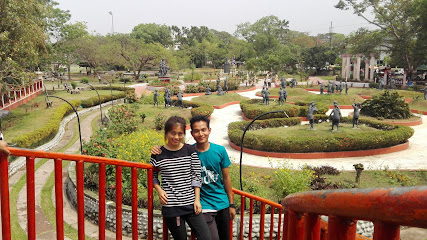
Guwahati Rope Way
Ascend the Guwahati Rope Way for breathtaking views of Assam's lush landscapes and the majestic Brahmaputra River, an unforgettable adventure awaits.
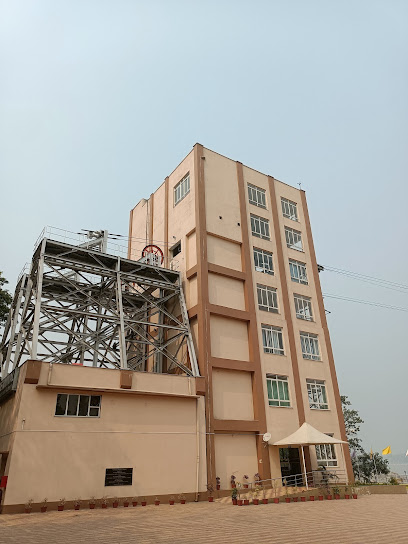
Valley View
Discover the breathtaking landscapes at Valley View in Guwahati, where stunning views of the Brahmaputra River and lush greenery await every visitor.
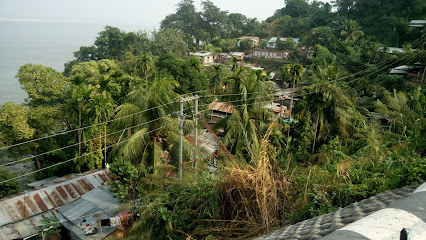
Shukreshwar Ghat/Park
Experience tranquility and cultural richness at Shukreshwar Ghat in Guwahati, a stunning park by the Brahmaputra River.
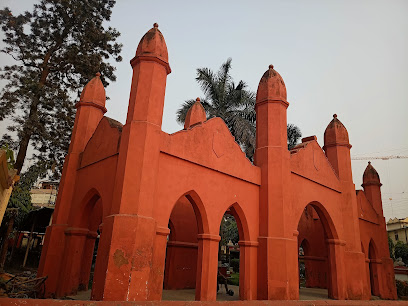
Brahmaputra River Heritage Centre
Immerse yourself in Assam's cultural heritage at the Brahmaputra River Heritage Centre, a must-visit museum showcasing the river's rich history.
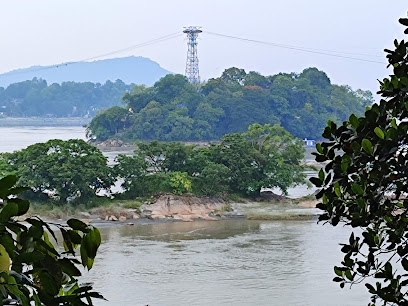
Gandhi Mandap
Explore Gandhi Mandap, a historical landmark in Guwahati, offering stunning views and a serene atmosphere dedicated to Mahatma Gandhi's legacy.
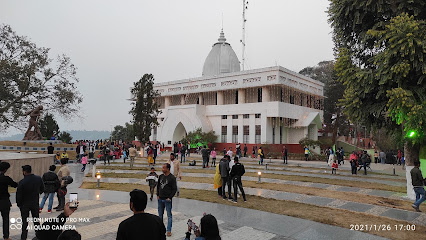
War Memorial
Explore the War Memorial in Guwahati, a serene tribute to the courage of Indian soldiers, surrounded by beautiful landscapes and rich military history.
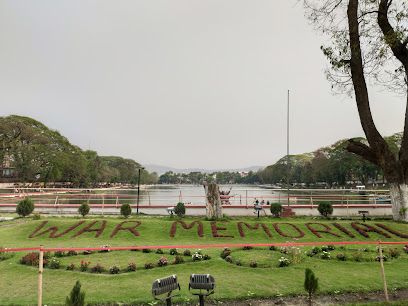
OLD DC BUNGLOW
Explore the Old DC Bungalow in Guwahati, a historical museum that beautifully encapsulates Assam's cultural heritage and architectural splendor.
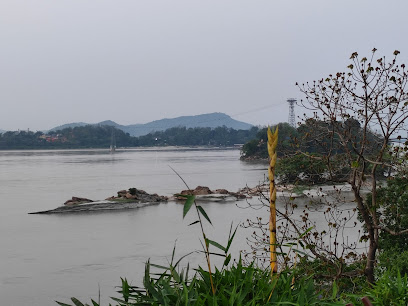
Brahmaputra Ghat
Discover the enchanting Brahmaputra Ghat in Guwahati, a serene riverside attraction perfect for cultural immersion and breathtaking views.
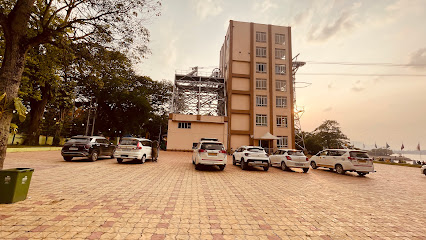
Northbrook Gate
Explore the Northbrook Gate in Guwahati, a historical landmark that beautifully reflects the rich culture and heritage of Assam.
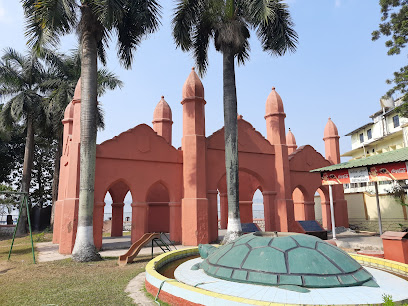
Panbazaar Shiv Mandir
Explore the tranquility and cultural richness of Panbazaar Shiv Mandir, a must-visit Hindu temple in Guwahati, Assam, enriching your travel experience.
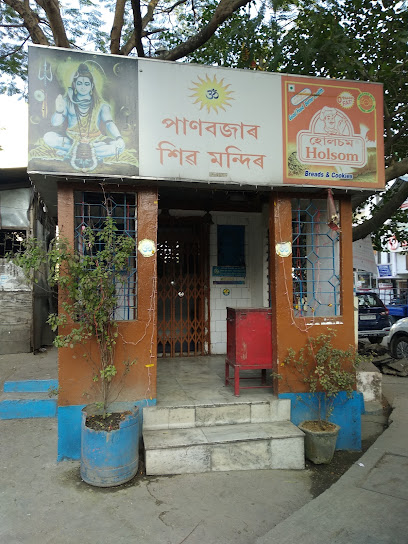
Unmissable attractions to see
Dighalipukhuri Park
Escape to serenity in the heart of Guwahati at Dighalipukhuri Park, a historic lake surrounded by lush greenery and recreational activities.
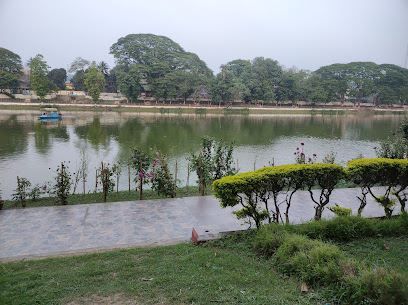
Valley View
Experience breathtaking views of the Brahmaputra River at Valley View, a serene escape in Guwahati, Assam, perfect for nature lovers and photographers.
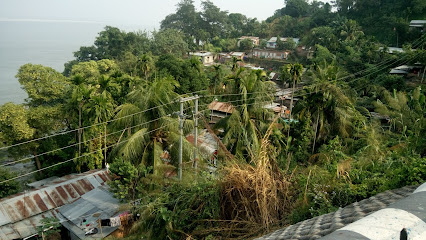
Brahmaputra River Heritage Centre
Explore Assam's heritage at the Brahmaputra River Heritage Centre: History, culture, and scenic beauty converge on the banks of a mighty river.
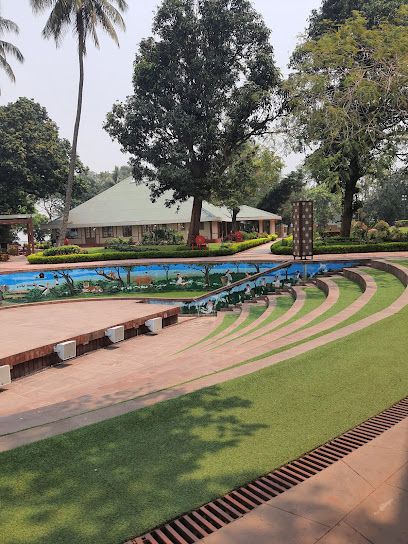
Gandhi Mandap
A serene tribute to Mahatma Gandhi in Guwahati, offering panoramic views and a peaceful atmosphere for reflection and historical exploration.
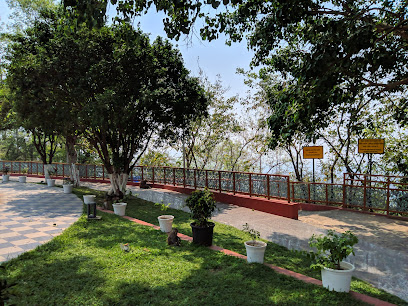
River Side Park
Escape to serenity at Guwahati's River Side Park: lush greenery, river views, and a peaceful retreat in the heart of the city.
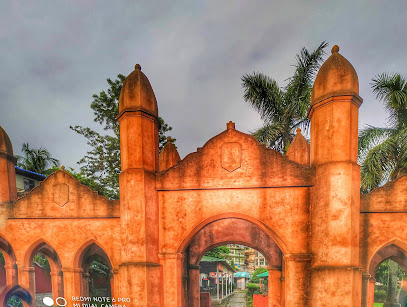
Essential places to dine
Food Villa
Explore diverse flavors at Food Villa in Guwahati - your go-to spot for breakfast, fast food, and pizza in a lively setting.
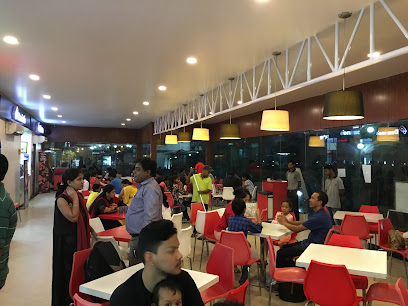
Nabhoj Restaurant
Discover the essence of Indian cuisine at Nabhoj Restaurant in Guwahati - where health meets tradition in every bite.
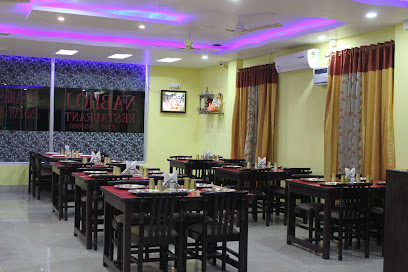
Piccadilly
Discover authentic Chinese cuisine at Piccadilly in Guwahati - where family-friendly dining meets delightful flavors.
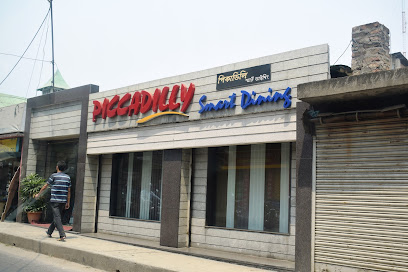
Ashoka Restaurant
Discover authentic Assamese cuisine at Ashoka Restaurant in Guwahati - where every meal is a flavorful journey into local culture.
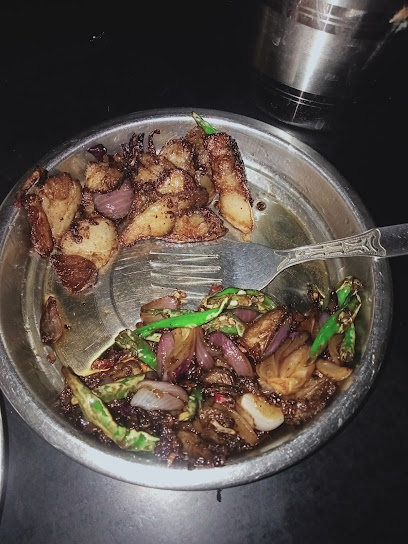
QUICK EAT RESTAURANT
Savor the best Mughlai and Chinese dishes at QUICK EAT RESTAURANT in Guwahati - where every bite is a flavor-packed journey.
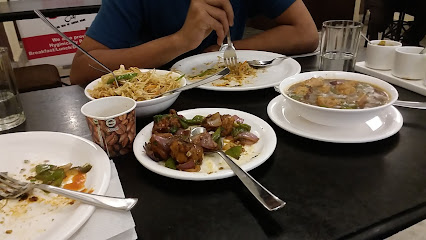
GHY 01 Restaurant
Experience the best of fast food with a local twist at GHY 01 Restaurant in Pan Bazaar, Guwahati.
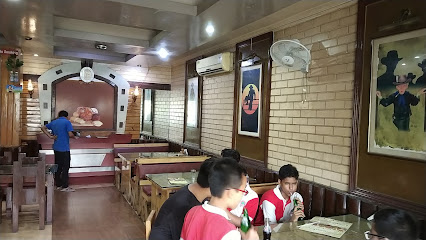
Breeze Restaurant
Experience delightful fast food at Breeze Restaurant in Guwahati - where every bite takes you on a flavorful journey.
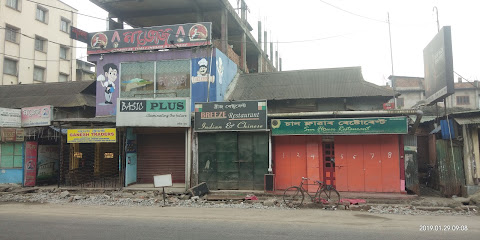
Davat
Experience a fusion of North Indian and Chinese flavors at Davat in Guwahati—perfect for family gatherings or quick bites!
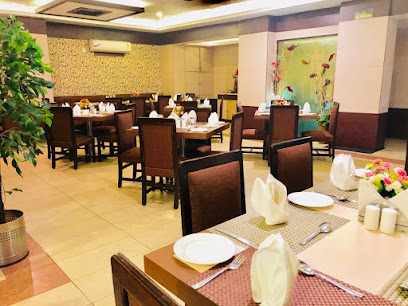
Feed's
Experience the best breakfast in Guwahati at Feed's - where local flavors meet comfort food in a cozy setting.
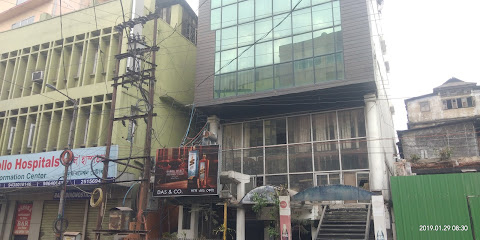
Prasad Restaurant
Experience authentic Indian flavors at Prasad Restaurant in Guwahati - where every dish tells a story.
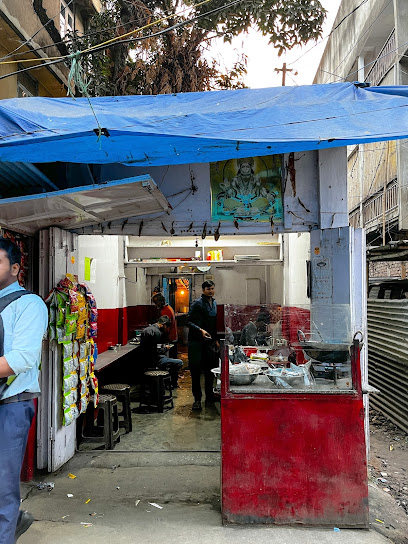
Markets, malls and hidden boutiques
Novelty Book Shop
Explore the literary treasures of Assam at Novelty Book Shop, a charming bookstore in the heart of Guwahati's Pan Bazaar.
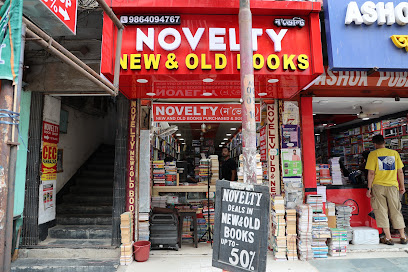
Unique Books Retail
Discover the literary heart of Guwahati at Unique Books Retail, where every book tells a story waiting to be explored.
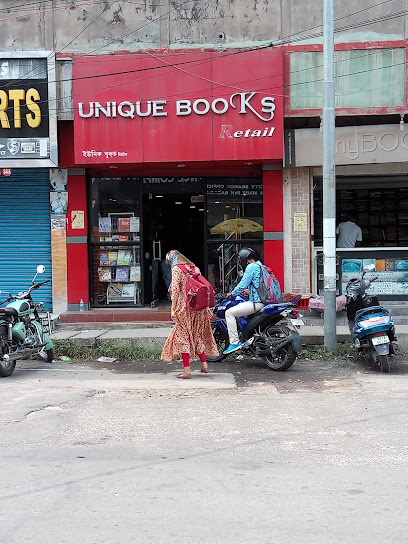
Kalpataru Silk Emporium
Explore the elegance of Assamese silk at Kalpataru Silk Emporium, a treasure trove of traditional craftsmanship and modern styles in Guwahati.
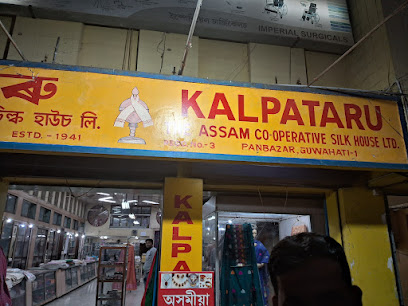
PADMA NARAYAN DEPARTMENTAL STORE
Explore the best of Assam's culture and modern convenience at Padma Narayan Departmental Store in Guwahati, where shopping meets tradition.
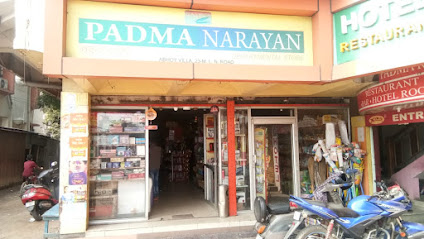
Unique Shopee
Discover Unique Shopee in Guwahati: Your go-to appliance store in the vibrant Fancy Bazaar, offering quality products and local charm.

Unique
Discover Unique in Guwahati: Your go-to stationery store for quality supplies and creative inspiration.

Pan Bazaar Corner
Discover the authentic essence of Guwahati at Pan Bazaar Corner, your go-to general store for local treasures and cultural experiences.
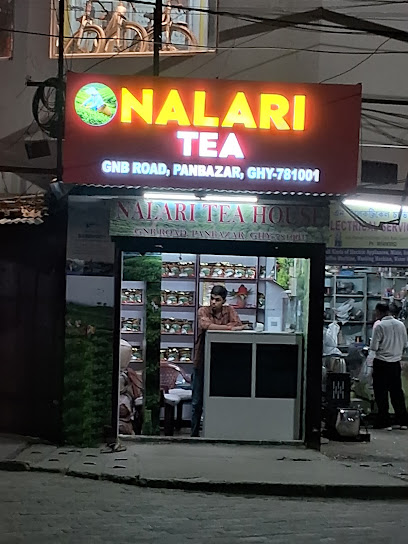
KRISHNA KUMAR
Explore the vibrant local culture at Krishna Kumar, a charming general store in the heart of Guwahati's Pan Bazaar, Assam.
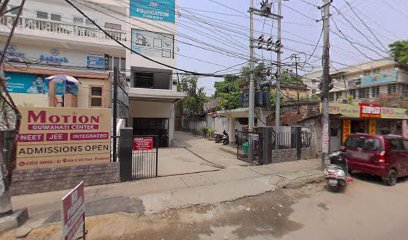
Aminul Shop
Discover the essence of Assam at Aminul Shop, a charming general store in Guwahati's vibrant Pan Bazaar, offering unique local treasures.
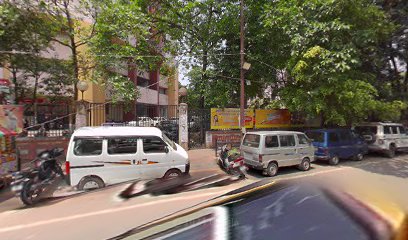
Rekha Store
Explore Rekha Store in Pan Bazaar for authentic Assamese products and a glimpse into local life, capturing the spirit of Guwahati's vibrant culture.
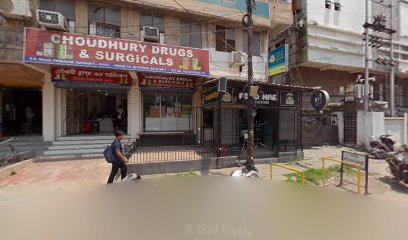
Essential bars & hidden hideouts
SAQUE BAR
Discover the lively atmosphere of Saque Bar in Guwahati, where delightful drinks and a welcoming ambiance create the perfect social experience.
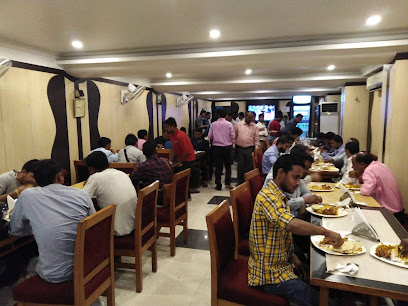
Paankhuri Bar & Restaurant
Discover the flavors of Assam at Paankhuri Bar & Restaurant, a family-friendly spot for delicious breakfasts and vibrant dining experiences.
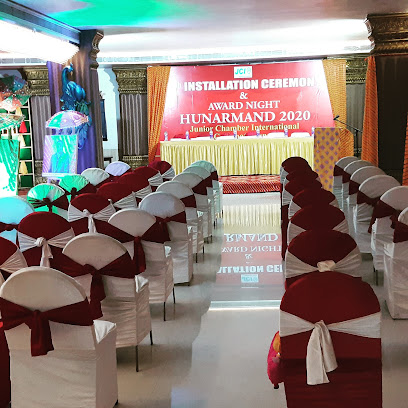
Ashoka Restaurant
Experience the authentic flavors of Assam at Ashoka Restaurant, where delicious cuisine meets a vibrant bar atmosphere in the heart of Guwahati.
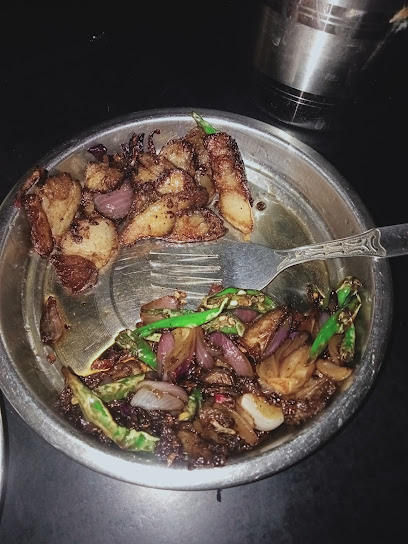
Saki Bar
Experience the vibrant nightlife of Guwahati at Saki Bar, where local flavors meet a lively atmosphere in the heart of Paltan Bazaar.
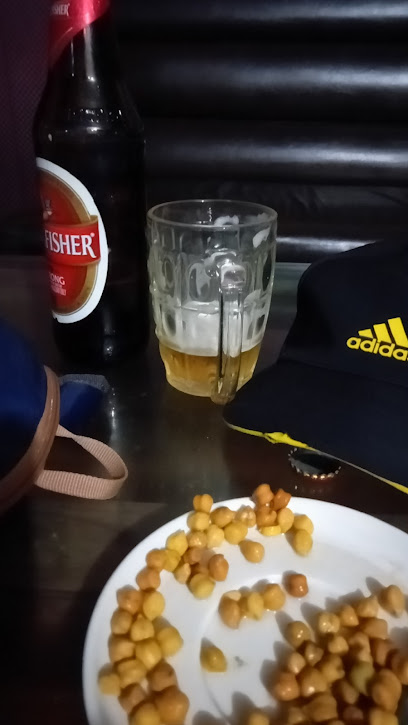
R.D. Bar & Restaurant
Experience the unique dining concept at R.D. Bar & Restaurant, where you can bring your own bottle and enjoy delicious grilled dishes in Guwahati's Paltan Bazaar.
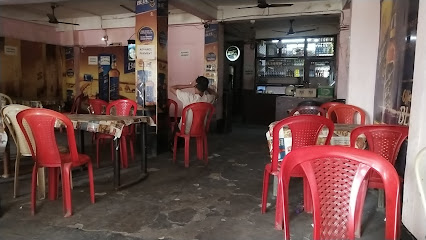
Empire Bar
Discover Guwahati's nightlife at Empire Bar, where vibrant atmospheres and a diverse drink selection await you.
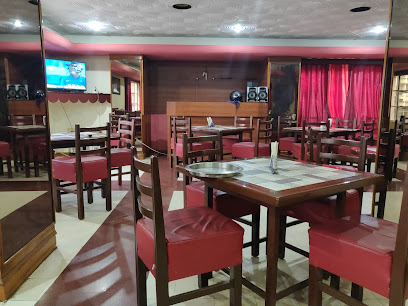
QUEEN BAR
Experience the vibrant nightlife of Guwahati at Queen Bar, where local beers and lively ambiance create unforgettable moments.
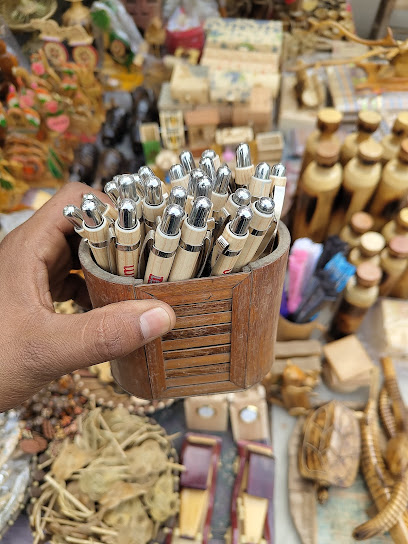
Bull's Eye Bar
Discover the lively Bull's Eye Bar in Guwahati, a perfect blend of delicious food, refreshing drinks, and vibrant atmosphere.

Guwahati Lounge
Experience the perfect blend of relaxation and local flavor at Guwahati Lounge, a serene retreat in the heart of Assam's vibrant Pan Bazaar.
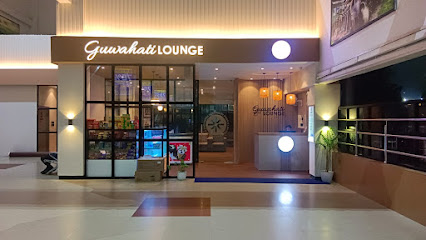
Maihang Restaurant and Bar
Discover Assamese cuisine at Maihang Restaurant and Bar, where rich flavors meet a vibrant atmosphere in the heart of Guwahati.
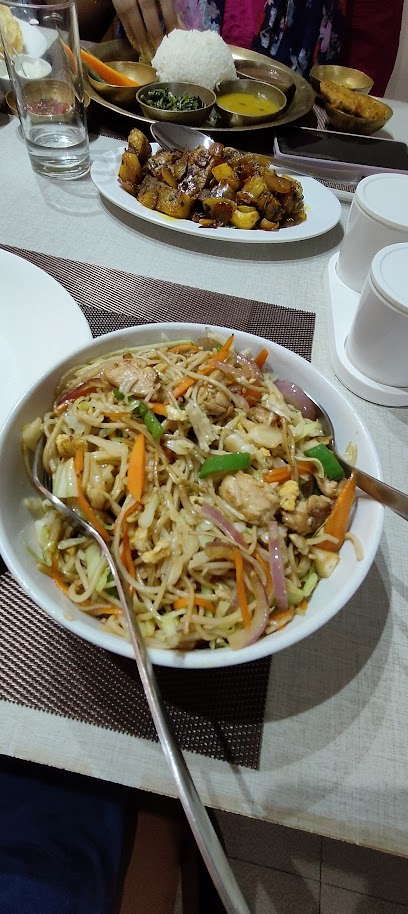
Local Phrases
-
- Helloনমস্কাৰ
[Nomoskar] - Goodbyeবিদাই
[Bidai] - Yesহয়
[Hoi] - Noনহয়
[Nohoi] - Please/You're welcomeঅনুগ্ৰহ কৰি / স্বাগতম
[Onugroh kori / Swagotom] - Thank youধন্যবাদ
[Dhonyobad] - Excuse me/Sorryদুঃখিত
[Dukhit] - How are you?আপুনি কেমন আছে?
[Apuni kemon aso?] - Fine. And you?ভাল আছো। আৰু আপুনি?
[Bhal asu. Aru apuni?] - Do you speak English?আপুনি ইংৰাজী কথা প্ৰয়োগ কৰে?
[Apuni English kotha proyog kore?] - I don't understandমোক বুজাই নাই
[Moi bujai nai]
- Helloনমস্কাৰ
-
- I'd like to see the menu, pleaseমেনু দেখিব পাৰিব, অনুগ্ৰহ কৰি
[Menu dekhib parib, onugroh kori] - I don't eat meatমই মাংস খাই নহয়
[Moi mans khai nohoi] - Cheers!স্বাগতম
[Swagatam] - I would like to pay, pleaseমই মোবাইল, অনুগ্ৰহ কৰি
[Moi mobail, onugroh kori]
- I'd like to see the menu, pleaseমেনু দেখিব পাৰিব, অনুগ্ৰহ কৰি
-
- Help!সাহায্য!
[Sahayyo!] - Go away!দূৰ চল
[Dur chol] - Call the Police!পুলিচ বুলাওঁ
[Police bulau] - Call a doctor!ডাক্তাৰ বুলাওঁ
[Doctor bulau] - I'm lostমই হাৰিছো
[Moi haricho] - I'm illমই অসুস্থ
[Moi osustho]
- Help!সাহায্য!
-
- I'd like to buy...মই কিনিব বিচাৰো দিয়া
[Moi kinib bicharo dia] - I'm just lookingমই কেৱল চাবিছো
[Moi kebol chabicho] - How much is it?ইয়াটা কি মূল্য?
[Yata ki moolyo?] - That's too expensiveইয়াটা বহুত মহঙ্গা আছে
[Yata bohut mohonga aso] - Can you lower the price?মূল্য কম কৰিব পাৰে?
[Moolyo kom korib pare?]
- I'd like to buy...মই কিনিব বিচাৰো দিয়া
-
- What time is it?এতিয়া কত বাজিছে?
[Etiya kot bajishe?] - It's one o'clockএটা এখন একটা বাজিছে
[Eta ekhon ekta bajishe] - Half past (10)দাহ পৰ্ণ বাজিছিল
[Dah parn bajishil] - Morningসকাল
[Sokal] - Afternoonবিকাল
[Bikal] - Eveningসাঁঝ
[Sah] - Yesterdayকাল
[Kal] - Todayআজি
[Aji] - Tomorrowকালো
[Kalo] - 1এক
[Ek] - 2দুই
[Dui] - 3তিনি
[Tini] - 4চাৰ
[Char] - 5পাঁচ
[Panch] - 6ছয়
[Choi] - 7সাত
[Sat] - 8আট
[At] - 9নয়
[Noy] - 10দহ
[Doh]
- What time is it?এতিয়া কত বাজিছে?
-
- Where's a/the...?এটা কোথাও আছে?
[Eta kothawo ashe?] - What's the address?ঠিকানা কি?
[Thikana ki?] - Can you show me (on the map)?মোক দেখাব পাৰিব?
[Moi dekhab parib?] - When's the next (bus)?পৰা বাস কেনে যাব?
[Pora bas kene jab?] - A ticket (to ....)এটা টিকেট দিয়া
[Eta ticket dia]
- Where's a/the...?এটা কোথাও আছে?
History of Pan Bazaar
-
Pan Bazaar has long been a vital commercial center in Guwahati, situated along the banks of the Brahmaputra River. Its strategic location made it a key trading hub for merchants and traders from various regions, including Assam, Bengal, and beyond. The bazaar served as a marketplace for goods such as silk, spices, and traditional handicrafts, playing a significant role in the economic development of the area.
-
The neighborhood of Pan Bazaar reflects the rich cultural diversity of Guwahati. Throughout history, it has been a meeting point for different ethnic communities, including Assamese, Bodos, and various migrant groups. This amalgamation of cultures has influenced the local cuisine, festivals, and daily life, making Pan Bazaar a vibrant representation of Assam's multifaceted identity.
-
During the British colonial period, Pan Bazaar saw significant urban development, with the establishment of various institutions and infrastructure. Colonial-era buildings, many of which still stand today, showcase a blend of European architectural styles with local designs. This period marked the introduction of modern banking and educational institutions, further integrating Pan Bazaar into the broader economic framework of Guwahati.
-
Pan Bazaar has historically been associated with Assam's literary and artistic movements. Many renowned Assamese writers and artists frequented the bazaar, drawing inspiration from its lively atmosphere and the diverse populace. The neighborhood has hosted various cultural events and gatherings, contributing to the flourishing of Assamese literature, music, and arts during the 20th century.
-
Today, Pan Bazaar continues to thrive as a commercial and cultural center in Guwahati. The bazaar has adapted to contemporary trends, showcasing a mix of traditional and modern businesses. With the rise of e-commerce and changing consumer behavior, Pan Bazaar has also embraced technology, yet it remains a beloved destination for locals and tourists alike, offering a glimpse into the historical and cultural fabric of the region.
Pan Bazaar Essentials
-
Pan Bazaar is well-connected to other neighborhoods in Guwahati. If you are arriving from Guwahati Railway Station, you can take a taxi or an auto-rickshaw, which takes approximately 15-20 minutes. From Lokpriya Gopinath Bordoloi International Airport, taxis are readily available and the journey to Pan Bazaar typically takes around 40 minutes, depending on traffic. Local buses also operate from various parts of the city to Pan Bazaar, making it accessible for budget travelers.
-
Pan Bazaar is a bustling area best explored on foot. The streets are lively, and walking allows you to fully appreciate the local atmosphere. Auto-rickshaws are available for short distances, while cycle-rickshaws can be hired for a more traditional experience. Local buses connect Pan Bazaar to other parts of Guwahati, and taxi services are also an option for longer travels. Bicycles can be rented from nearby shops for those who prefer a more active way to explore.
-
Pan Bazaar is generally safe for tourists, but standard precautions should be taken. Avoid walking alone late at night, especially in dimly lit areas. While violent crime is rare, petty theft can occur, particularly in crowded markets. Be cautious of your belongings and avoid displaying valuables. Areas like the banks of the Brahmaputra River can be less secure at night, so exercise caution.
-
In case of an emergency, dial 100 for police assistance and 102 for medical emergencies. Local hospitals and clinics are available, with the Gauhati Medical College and Hospital being the largest in the vicinity. It is advisable to have travel insurance that covers health emergencies. For minor ailments, local pharmacies are widely available for purchasing over-the-counter medications.
-
Fashion: Do dress modestly, particularly in religious sites. Avoid revealing clothing. Religion: Do respect local customs, especially in temples, by removing shoes and not taking photos unless permitted. Public Transport: Do offer your seat to elderly or disabled passengers. Don’t eat or drink on public transport. Greetings: Do greet locals with a smile and a polite nod; a handshake may also be appropriate. Eating & Drinking: Do try local street food but ensure it's from a hygienic vendor. Don’t refuse food or drink offered by locals; it is considered impolite.
-
To experience Pan Bazaar like a local, visit the vibrant markets early in the morning when they are bustling with activity. Sample local delicacies like pitha (rice cakes) and Assamese tea from street vendors. Engage with shopkeepers; many are eager to share stories about their products and the area. Don’t miss the nearby Assam State Museum for a glimpse into the region's rich history. If you're looking for unique souvenirs, explore the handloom and handicraft shops, which offer authentic local goods.
Nearby Cities to Pan Bazaar
-
Things To Do in Shillong
-
Things To Do in Trashigang
-
Things To Do in Mongar
-
Things To Do in Sylhet
-
Things To Do in Jakar
-
Things To Do in Trongsa
-
Things To Do in Bumthang
-
Things To Do in Itanagar
-
Things To Do in Wangdue Phodrang
-
Things To Do in Punakha
-
Things To Do in Kohima
-
Things To Do in Phuentsholing
-
Things To Do in Rangpur
-
Things To Do in Thimphu
-
Things To Do in Agartala








